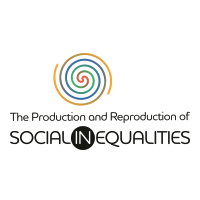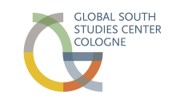
From Global Standards to Unequal Treatment: The ILO and the Concept of “Native Labor”
Project members:
- Prof. Dr. Ulrike Lindner, University of Cologne, Principal Investigator
- Fabiana Kutsche, University of Cologne, Doctoral Researcher
This project looks at the International Labor Organization (ILO) and its handling of the issue of “native labor” from the 1919 to 1957. The ILO, created in 1919 at the peace conference in Versailles, had a tripartite structure comprised of workers, employers, and governments. It developed a strong expertise in the field of labor policy, pushed for better conditions for workers in its member states, and aimed to establish universal labor standards. Its initial focus was on industrial labor in Western countries. However, when members of the ILO such as Albert Thomas tried to extend its standards to colonial societies during the 1920s, they were rebuked by most colonial governments (Maul 2012).
Following debates on forced and compulsory labor as well as on slavery and indentured labor that attracted public attention in Europe and North America, the League of Nations issued the Slavery Convention in 1926. The ILO was mandated by the League to develop regulations on forced labor, still facing the opposition of the colonial governments, who drew on racial stereotypes and the argument of trusteeship and civilizing mission to avoid stricter regulations. To address the problem of differential treatment of workers in Southern colonies and Northern metropoles, the ILO adopted the term “native labor” in its own publications and statements (Rodríguez-Piñero 2005), thereby introducing a form of double standard. The term was commonly used for the indigenous workforce in several colonies.
The Forced Labor Convention was finally issued in 1930 but ratified by many governments only in the 1950s. While it obliged the signatories to abolish forced labor, many exceptions were made, e.g., forced labor was still allowed for infrastructure projects in colonies. Focusing on the concept of “native labor”, the project will ask: In what ways has the concept contributed to reifying social inequalities across the global color line and to affirming colonial structures? How has the concept’s underlying assumption affected negotiations between the ILO, colonial powers, and emerging unions in the colonies? The project will include a case study on the colonial government of India, the only colony with delegates in the ILO. It will be based on materials from the ILO Archive, Geneva; the Nehru Memorial Museum and Library in New Delhi, India; the Bodleian Library in Oxford, UK; and other printed resources.
Cited literature:
- Maul, Daniel (2012): Human Rights, Development and Decolonization. The International Labour Organization 1940-70. Houndmills Basingstoke: Palgrave Macmillan.
- Rodríguez-Piñero, Luis (2005): Indigenous Peoples, Postcolonialism, and International Law. The ILO Regime (1919-1989). Oxford: Oxford University Press.
Learn more...


Project Activities

Project: Chinese indentured labor as "new slavery"
This Research Unit is funded by the Volkswagen Foundation


